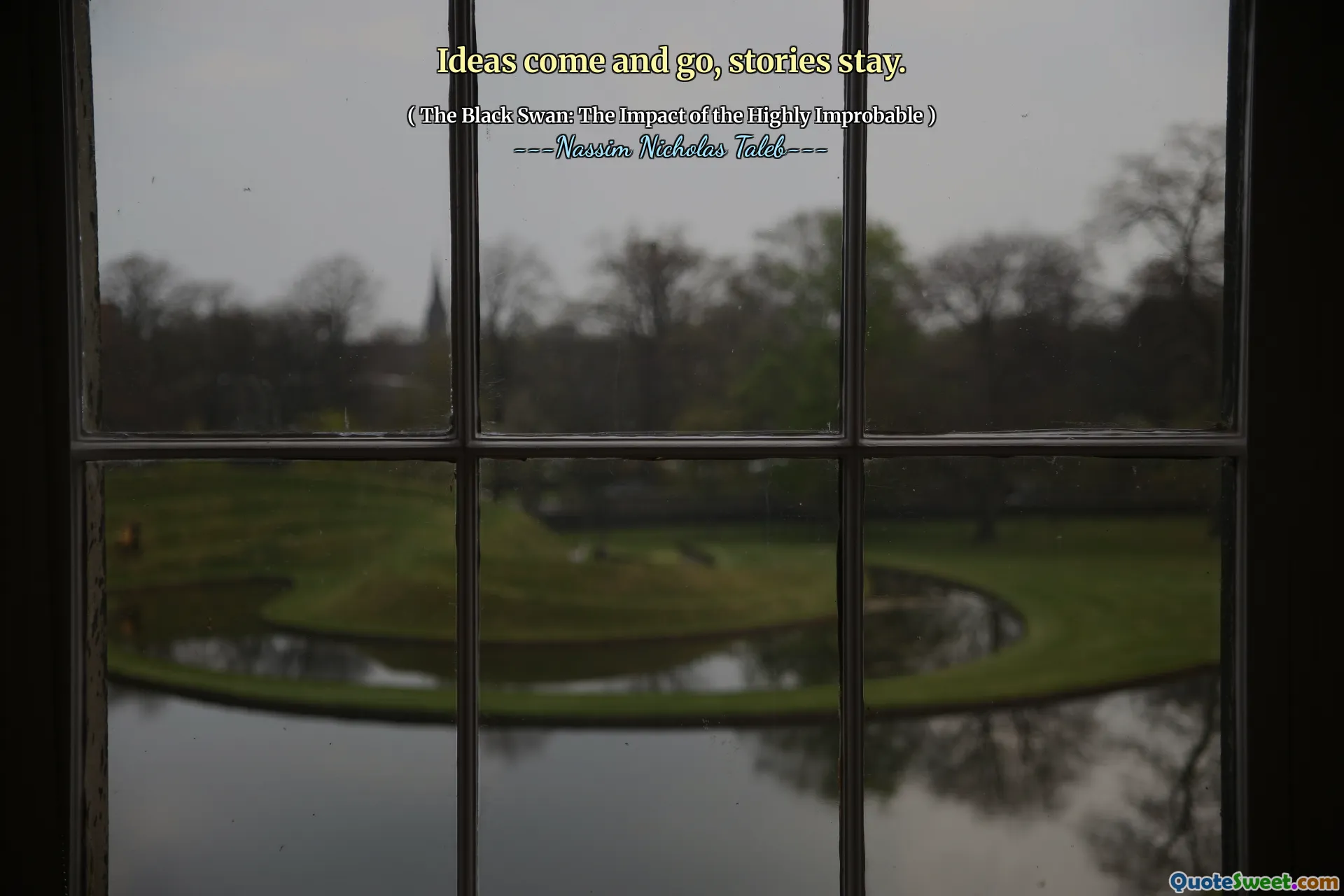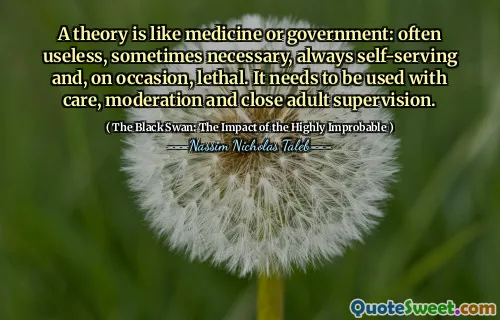
Ideas come and go, stories stay.
This quote highlights the profound durability and emotional resonance of stories compared to the transient nature of ideas. While ideas may spark innovation and change temporarily, they often circulate and evolve rapidly, sometimes fading as quickly as they appear. Stories, however, hold a unique cultural and psychological power that ensures their persistence across time and generations. They weave ideas into narratives that resonate on a deeply personal and collective level, shaping identities, values, and memory.
From the lens of Nassim Nicholas Taleb’s The Black Swan: The Impact of the Highly Improbable, stories are the frameworks through which we attempt to make sense of randomness and uncertainty. Taleb emphasizes the unpredictable and improbable forces shaping our world, and stories provide a semblance of order amid this chaos. Unlike raw ideas, which might be easily discarded or replaced, stories carry the weight of human experience, emotion, and context, making events relatable and understandable.
In practical terms, the quote reminds us of the critical importance of storytelling in communication, education, and cultural continuity. Stories embed lessons and meaning within narratives that engage the imagination and empathy, ensuring that messages remain relevant and compelling through time. This endurance is why certain tales, myths, or historical accounts survive millennia, guiding societies even when specific ideas or facts may be lost or less emphasized.
Ultimately, the quote encourages a reflection on the medium through which knowledge and wisdom endure. Ideas may flash bright momentarily, but the stories crafted around them enable true longevity and meaningful impact. It underscores the human affinity for narrative as a path to understanding our world and our place within it.











